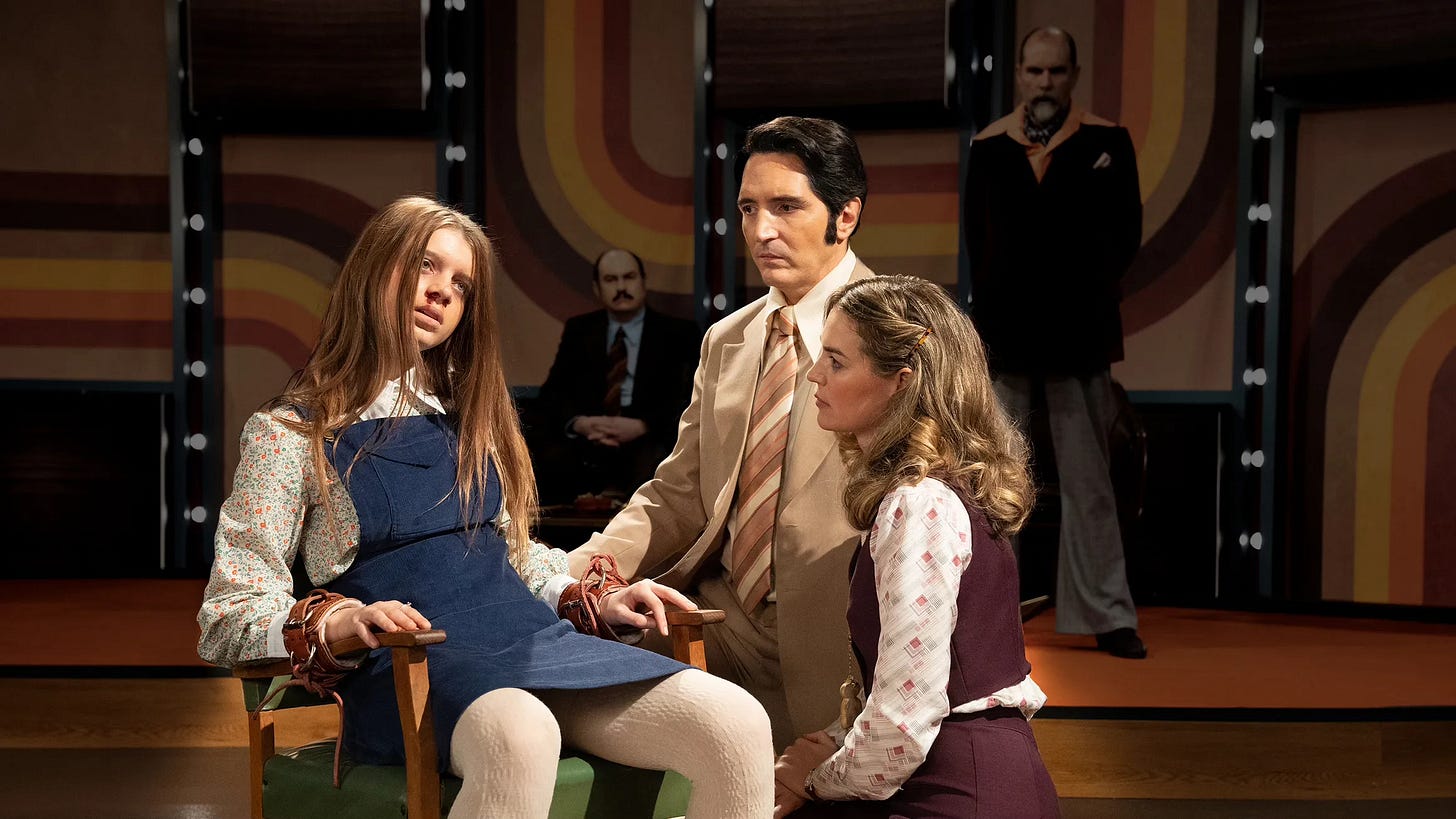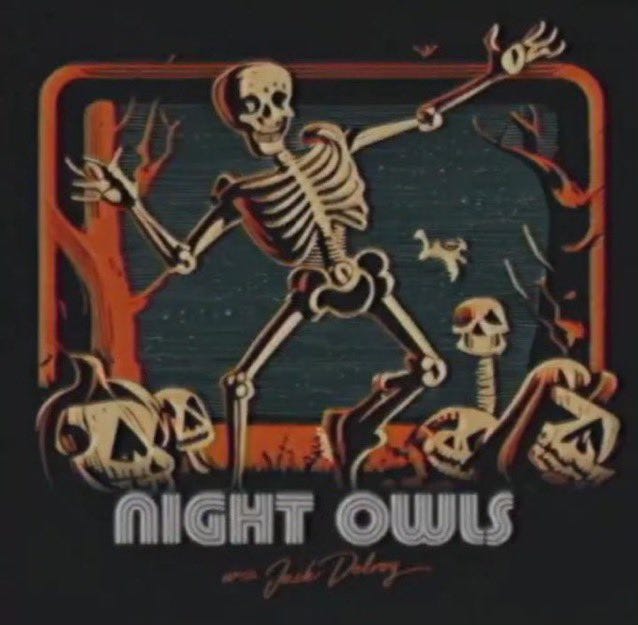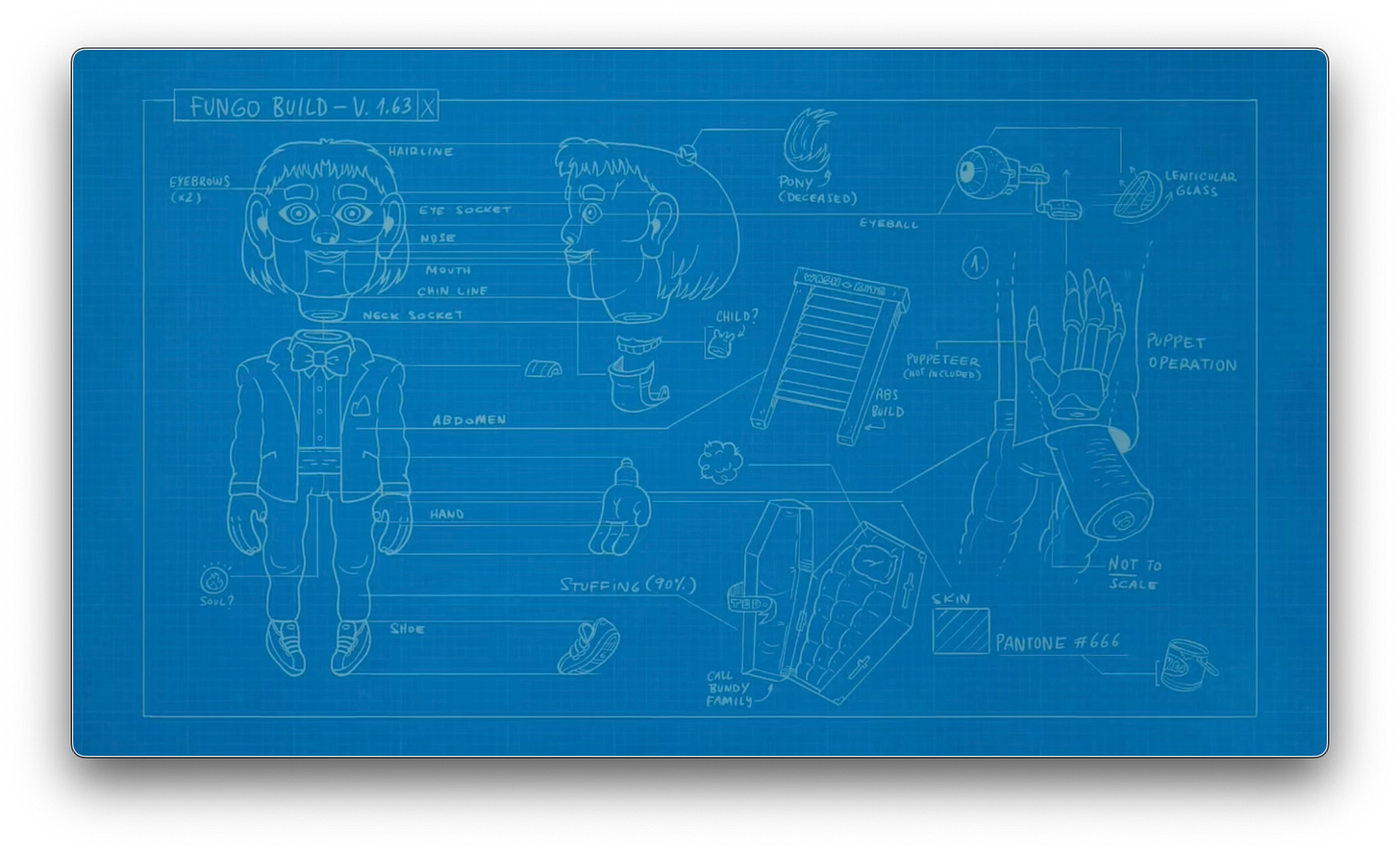Last week, Variety reported that the directors of the new indie horror movie LATE NIGHT WITH THE DEVIL used AI image generation to create three still illustrations for the movie. The response from the creative community on Twitter was immediate: audience members who would have actively turned out to support an indie movie (which, by all accounts, is otherwise very good) have been put off seeing it because they do not wish to support the use of AI generated images in cinema - and were quick to point out that the image they ended up using isn’t even that great. Even if only a few hundred people boycott the film: that’s a lot more money in ticket sales than it would have cost to hire an artist.
I count myself among those who were looking forward to watching that movie, but will now be giving it a miss. The Animation Guild - the union I’m part of as an animation writer - will soon be entering negotiations with the AMPTP: the same body whose incalcitrant refusal to meet writers and actors halfway resulted in a historic strike. I’m hoping my union won’t have to strike, but - as the Writers Guild of America successfully managed to do last year - it’s vital that animation workers are provided with tangible safeguards against the use of AI. As artist Allison Perry recently posted on Twitter: “if AI is "inevitable" & designed to "help us be more productive," who exactly benefits from that added productivity? if AI helps me produce 20 extra hrs of work per wk, do I get paid for those 20 hrs, or does my employer just pocket that surplus profit?”
To me, this is the real threat of AI: not that its capabilities are actually a threat to artists (I truly believe they aren’t as it stands), but that those who would rather please their shareholders than their customers will use it to perpetuate the myth of infinite growth for just a little while longer.
In this newsletter, I want to talk a little about the use of AI for storytelling, and why we rejected its use in MURDER FOR DUMMIES. Far smarter writers are out there with all the insight you could ever need on the inherent con artistry of AI, the smoke and mirrors behind it, and its toxic effect on the internet as a whole: I’d particularly encourage you to read Ed Zitron (who, fun fact, was my first ever writing mentor back in our games journalism days).
Writers like Ed are doing vital work exposing the lies and limitations behind AI. But as a screenwriter and creator, I believe there’s a fundamental reason - that rarely gets discussed - why AI simply doesn’t work as a replacement for artists and writers.
No AI images in Murder for Dummies
If AI was any good - technically, morally, or otherwise - I can imagine a world where we would have used it for MURDER FOR DUMMIES. The temptations of what it can supposedly offer are obvious: we’re on a shoestring budget, the vast majority of our post-production is being handled by our poor overworked director J.W. Roberts, and we have numerous highly specific custom images that, in some cases, have been an absolute ballache to Photoshop.
Neither our director nor I believe in AI from a moral standpoint or a technical one. Instead, we hired Charlotte Hussey, Dashiell Silva and Pedro Eboli to create the custom images we couldn’t do ourselves.
As with every artist we’ve hired to work with on MURDER FOR DUMMIES - including the actors, make-up artist, composer, director of photography, production assistants, sound recordists and more - we couldn’t afford to pay Charlotte, Dash and Pedro their industry standard professional rates. But everyone we’ve collaborated with has understood that we’re an indie, homespun project - making a series that would have cost a TV studio £250,000 to produce on a budget of £30,000. We’ve been surprised and touched by how willing everyone has been to provide their skills to us to help bring our goofy little murder mystery to life - and with everyone, the end result has been something more vivid, playful, detailed and specific than any AI image generator could ever hope to produce for us.
What’s frustrating about the LATE NIGHT WITH THE DEVIL case is that it truly wouldn’t have cost its filmmakers a lot of money to hire artists to do the same work. Given the nature of the movie, perhaps they intentionally wanted something that felt “off” and weird, and their justification for using AI was a creative choice: they knew it would produce something that felt wrong, and that’s what they wanted. But there is still no reason they couldn’t have hired an artist to do the exact same work for an affordable rate.
Why we listen to DJs
All of this stuff might seem like shop talk: like these are issues that only people involved in the tech, media or entertainment industry actually care about. But we’re already seeing a public backlash to even the theoretical use of AI. Badly-received movies are disparagingly described as being “written by AI”; poorly composited images and computer generated voices are roundly mocked - but most of all, people simply aren’t responding to the tech companies’ desperate foisting of AI into everyday life.
I’m worried about how big companies will use AI to take advantage of workers - and know they will in the short term - but I’m not convinced that AI itself is the existential threat to the arts that its supporters claim it to be. In fact, I believe rather firmly that, in the coming years, we’re going to see a public rejection of AI in media and entertainment. The companies are so blinded by their need to please their investors that they don’t just forget their audience: they fundamentally misunderstand them, and won’t realise that until it begins to literally cost them money in the long run.
This particularly struck me when a friend of mine demonstrated Spotify’s AI DJ to me: whoever thought this was a product that people would actually want has so completely missed the point of why people listen to DJs in the first place that it felt laughably absurd. Who is this FOR?! Who actually WANTS this?
The answer, when you actually stop to think about it, is “no-one”. We listen to real-life DJs for the same reason we read books and articles, the same reason we go on social media, the same reason we watch movies or the morning news. The fundamental human need that all the proponents of AI simply cannot comprehend is that sharing our experiences and selves with other people is how we connect with the world.
The reason AI cannot replace storytellers is because AI isn’t actually “artificial intelligence”. It’s a large language model; a glorified Google - the fact we’re all referring to it as “AI” feels like one of the most deceptive and sly examples of false marketing I’ve ever seen. To be an actual “intelligence” in the way we’ve always understood it means that AI needs a consciousness. With consciousness comes agency, perspective, sentience, self-awareness. These are the things that make us human, and it's through stories - whether that’s a book, a movie, or just the tale your best mate’s telling you down the pub - that we connect with each other. We share our experience in the hope that the person we’re reaching out to will understand the feeling we’re expressing - yes, I’ve felt that too. Even if you haven’t gone through the exact same situation: a well told story connects with and expands your own experience of the world. This is how we all relate to each other; it’s what we all seek from each other. To be understood, the need to feel seen, is what makes all of us, whether we’re writers or not, tell our stories - and what draws us to the stories of others.
What we’re calling AI right now is, simply, not sentient. It has no perspective. It cannot possibly tell a story that we will connect with, because it has no experience to share. Whether or not the general public thinks about this stuff or not: experience and perspective and connection are what we are all drawn to, and AI can never provide that.
Someone online recently pointed out that what we’re calling AI doesn’t know what a cow is: it might have a billion descriptions of cows to draw on, but this is why those “hallucinations” or glitches appear so regularly in their images: it doesn’t actually know anything. I would add that, in the same way, an AI doesn’t know what heartbreak is. It doesn’t know what a joke is. It doesn’t know what surprise is, or fear is. For these reasons, it’s literally unable to tell a story - and no matter how much more sophisticated the technology gets, it will never be able to do those things.
In their Scriptnotes podcast, screenwriters John August and Craig Mazin regularly reject the idea that learning screenplay structure is the key to writing a movie, emphasising instead that stories need to be driven by character and theme. You might be able to feed Save The Cat to an LLM and have it mimic screenplay structure to create a forgery good enough for an idiot, but on a fundamental level: AI cannot tell a story. And people need real stories more than tech companies think they do.
When I see the first signs of the general public recognising AI for what it is and rejecting it, I think about how this is simply the latest in a long line of examples of how tech companies fundamentally don’t get that human connection with each other underpinned their success. Facebook is dying, Twitter is dying, Instagram is dying; what made each of these social media apps rise to astronomical success in the first place was that they freely provided something we all crave, something the internet used to be good at: a simple way to connect with each other.
This is why we all flocked to those sites - but their owners have intentionally wrecked that functionality in pursuit of our money, directly impeding the service they’re meant to provide through algorithms and ads, all in the name of promising their shareholders that the profits will never, ever stop going up. So we leave, in search of a new way to connect with each other - and the companies continue to barf up meaningless, empty composite nothings, making the infinite internet feel smaller and smaller by the day. Now, they’ve all turned to AI as their latest attempt to try and lure their dwindling user bases back: again failing to understand that this isn’t what anyone wants.
Human connection is what drives us - and I wouldn’t be surprised if the companies that rise to the top are the ones who recognise that first.
An update on Murder for Dummies
Welcome back to MURDER, MEANS AND OPPORTUNITY! It’s been a long while since my last post, but we’re in an exciting phase of post-production on the series and our release date is getting nearer and nearer. Our first episode is due to be completely, 100% locked and done this coming week, which is a huge milestone for us - and episodes two, three and four are hot on its tail.
In a future newsletter in April, we’ll share more about what’s going on behind the scenes on the show. Until then - continue to support independent creators THANK YOUUUU
Love,
James






